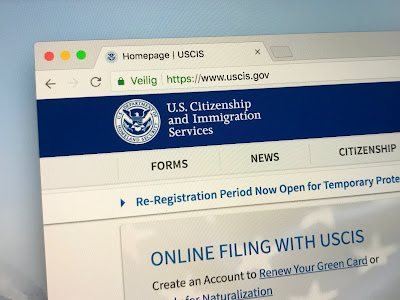We have helped Chinese investors who are Grenadian citizens quickly and successfully obtain E-2 visas. Let us help you!
David Enterline, Founder and managing partners of Enterline & Partners, of counsel at Taipei Commercial Law Firm, has successfully obtained an E-2 visas for a Chinese investor who became a Grenadian citizen via the Grenadian Citizenship by Investment (CBI) program, joining only a handful of U.S. attorneys who have done so.

Grenada is one of the score of countries that offer CBI programs, but is special because of its unique status of having a treaty of commerce with the United States that allows for its citizens to apply for E-1 Treaty Trader and E-2 Treaty Investor visas. In that last few years, many Chinese nationals have considered alternatives to the U.S. EB-5 immigrant investor visa because of the long wait for the EB-5 visa. Obtaining Grenadian citizenship and setting up a qualifying business in the U.S. will allow the Chinese-Grenadian citizen and qualifying family members to enter the U.S. in 4-6 months.
EB-5 visa for Chinese investors – 15-year wait
There is currently an estimated 15-year visa wait for Chinese investors who now (in 2018) begin the process to obtain an EB-5 visa. Although EB-5 has been very popular over the last 10 years in China, many investors and their families are unwilling to wait so long to obtain a “green card” to live, study and work in the United States.
E-2 Through Grenada Citizenship – Quick and Fast
Chinese citizens can become Grenadian citizens in 4-6 months. The most hassle-free option for citizenship is by “donation”, which requires $200,000 (+ costs) for families of up to four persons.
E-2 Visa – Quick and Fast, Live and Work in the U.S. … Indefinitely
Once a Chinese investor is a Grenadian citizen, he or she can apply for an E-2 visa. After choosing and making a qualifying investment, the E-2 visa can be obtained very fast, sometimes in as little as 2 weeks. Interviews can be conducted as U.S. Consular Offices in Beijing, Shanghai, or Guangzhou, and approvals are made directly at the end of the interview.
The E-2 visa is initially valid for 5 years and covers spouses and all family members under 21. While the E-2 visa is a non-immigrant visa (no “green card”), it can be renewed indefinitely, for as long as the eligible business is operating.
by: Enterline and Partners Consulting
 This is an update from a recent policy announcement wherein travelling abroad while an application for advance parole is pending will result in the denial of that application due to abandonment. The same holds true even if the applicant has a separate valid advance parole document or a valid U.S. visa, specifically H, K, L, or V visa to return to the United States.
This is an update from a recent policy announcement wherein travelling abroad while an application for advance parole is pending will result in the denial of that application due to abandonment. The same holds true even if the applicant has a separate valid advance parole document or a valid U.S. visa, specifically H, K, L, or V visa to return to the United States. 

